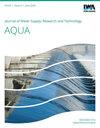水-食物-能源关系的可持续性指数,以制定有关虚拟水的战略
IF 4.3
Q2 Environmental Science
引用次数: 0
摘要
水资源的管理需要对同时管理粮食和能源资源有一个正确的认识。水-食物-能源关联框架与资源和利用的可持续性方法,通过情景规划分析了水、食物和能源资源的联合管理和开发。除了可持续发展的概念,环境成本,如二氧化碳从化石燃料的排放及其对环境的影响也进行了讨论。在这项研究中,根据确定的五个指标,并根据利用太阳能的潜力和开发太阳能等可再生能源的可能性,制定了各种管理方案。以湖南流域开发的虚拟水资源管理模型为例,建立了水-食物-能源关联模型及其定标,提出了提高水资源利用效率、节约能源、提高粮食生产力和关联可持续性4种情景。结果表明,nexus策略可以根据各组成部分的权重提供可持续发展目标。在组合情景之后,提高水资源消耗效率可以成为干旱地区决策模型中最优先考虑的部分。本文章由计算机程序翻译,如有差异,请以英文原文为准。
Sustainability indexes in water–food–energy nexus to develop strategies with respect to virtual water
The management of water resources requires a correct understanding of the simultaneous management of food and energy resources. The framework of water–food–energy correlation with the approach of sustainability of resources and uses analyzes the combined management and exploitation of water, food, and energy resources with the help of scenario planning. In addition to sustainability concepts, environmental costs such as the emission of carbon dioxide from fossil fuels and its impact on the environment are also discussed. In this research, according to the five defined indicators and based on the potential of using solar energy and the possibility of exploiting renewable energy sources such as solar energy, various management scenarios have been developed. After examining the virtual water management model developed in the Hunan basin as a case study, the development of the water–food–energy nexus model and its calibration, and four scenarios including improving water use efficiency, energy saving, increasing food productivity, and nexus sustainability were developed. The results showed that the nexus strategy can provide sustainability goals according to the weight of each component. After the combined scenario, improving the efficiency of water consumption can be the component with the highest priority in the decision-making model in dry areas.
求助全文
通过发布文献求助,成功后即可免费获取论文全文。
去求助
来源期刊
CiteScore
4.70
自引率
0.00%
发文量
74
审稿时长
4.5 months
期刊介绍:
Journal of Water Supply: Research and Technology - Aqua publishes peer-reviewed scientific & technical, review, and practical/ operational papers dealing with research and development in water supply technology and management, including economics, training and public relations on a national and international level.

 求助内容:
求助内容: 应助结果提醒方式:
应助结果提醒方式:


